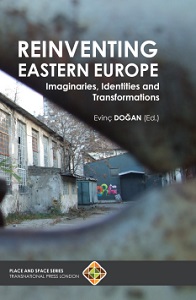Urban Transformation in a Post-socialist Society-From unity to separation
Urban Transformation in a Post-socialist Society-From unity to separation
Author(s): Aleksandar Joksimović
Subject(s): Christian Theology and Religion, Architecture, Recent History (1900 till today), History of Communism, Politics and Identity, Identity of Collectives
Published by: Transnational Press London
Keywords: Yugoslavia; Post-socialist society; urban transformation; Belgrade; Skopje; Zagreb; Ljubljana; Fužine; architecture;
Summary/Abstract: Yugoslavia was established in 1918-at that time known as the Kingdom of Serbs, Croats and Slovenes. In 1946 (post-WW II), when a communist government was established, Yugoslavia changed its name to the Federal People’s Republic of Yugoslavia. Only two years after that, in 1948, conflict between Tito and Stalin resulted in the exclusion of Yugoslavia from the Communist Information Bureau. Given this situation Yugoslavia developed a new agenda of positioning itself “between capitalist West and communist East.” Consequently, cultural and architectural production needed to manifest new ideas.
Book: Reinventing Eastern Europe: Imaginaries, Identities and Transformations
- Page Range: 155-166
- Page Count: 12
- Publication Year: 2019
- Language: English
- Content File-PDF

